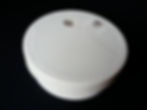Maintaining Maintenance
- Keri Choplin
- Sep 25, 2020
- 2 min read
Do you ever wish that there was a handy home-owner's guide that directs you throughout the year? We do! Owning a home may be the American dream, but it is also a huge responsibility. Maintaining the maintenance on your home is the best way to avoid costly repairs later. As we move into Fall, consider these recommendations for home maintenance, as recommended by Thimmeschkasner Insurance.

Clean Out Gutters--Clogged gutters put your home at risk of unnecessary water damage and can cause undue wear and tear on your gutter system. Leaves, twigs, pine needles, and other debris create additional weight and divert or stall water drainage. Removing the debris allows rainwater to drain as it is intended. While it isn't the most glamorous chore, a pair of yard work gloves, a ladder and a gutter brush are easy tools to acquire.

Trim Yard Trees and Bushes--Now that the heat isn't quite as sweltering, attend to the dead or overhanging branches on your property. Prune or trim landscaping bushes so that foliage is not brushing against your home or windows. Cut the yard, rake and bag leaves and yard waste, which will reduce the soggy mold that can cause mold and ruin next year's lush greenery.

Weatherstripping--Check all doors and windows to ensure the weatherstripping is still in good condition and not gaping or cracked. This will maintain your energy costs during the winter. Pay special attention in high-traffic areas, such as the main entry way and back door. It's also a good idea to make certain that all door knobs and window locks are working correctly.

Clean Fireplaces & Chimneys--It's a great idea to clean that fireplace out now, before you need it to warm your home! Ashes, oils and dust can build up in fireplaces, causing flames to get out of control.



